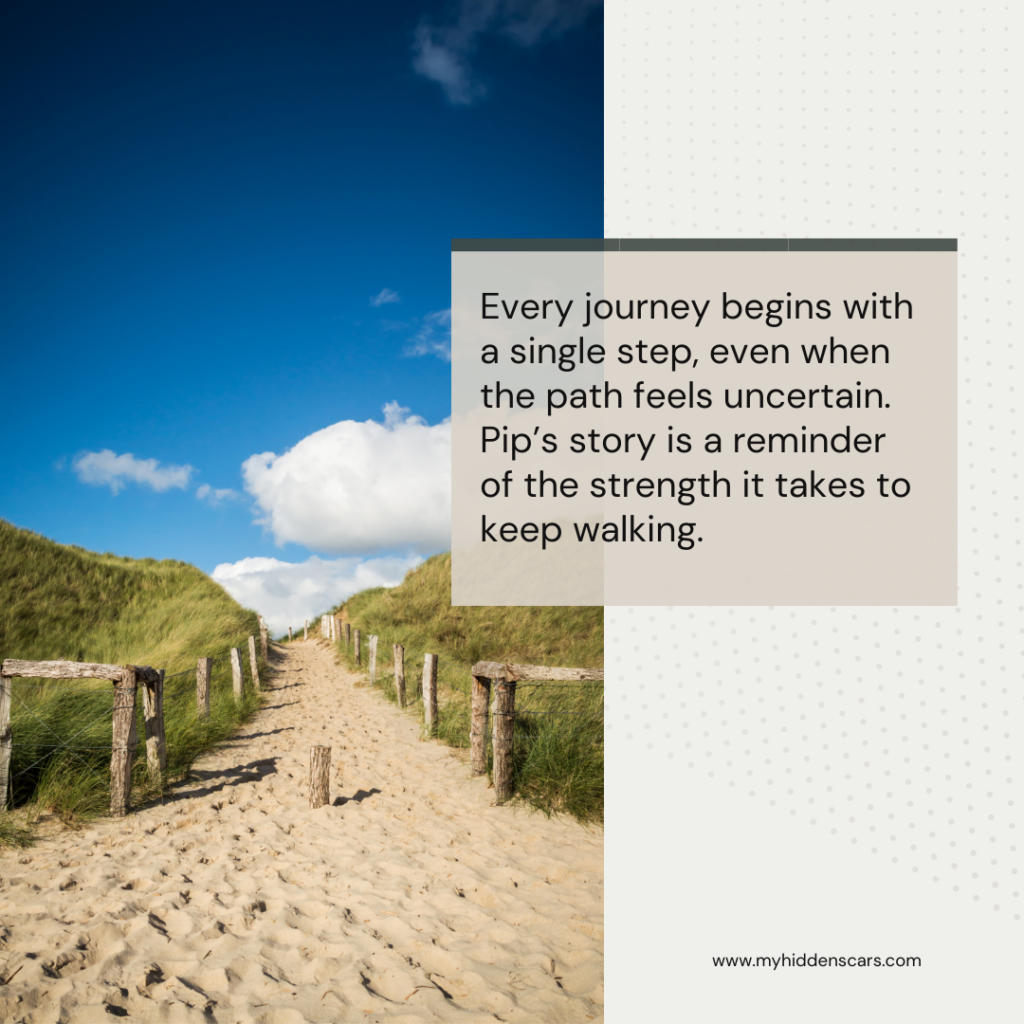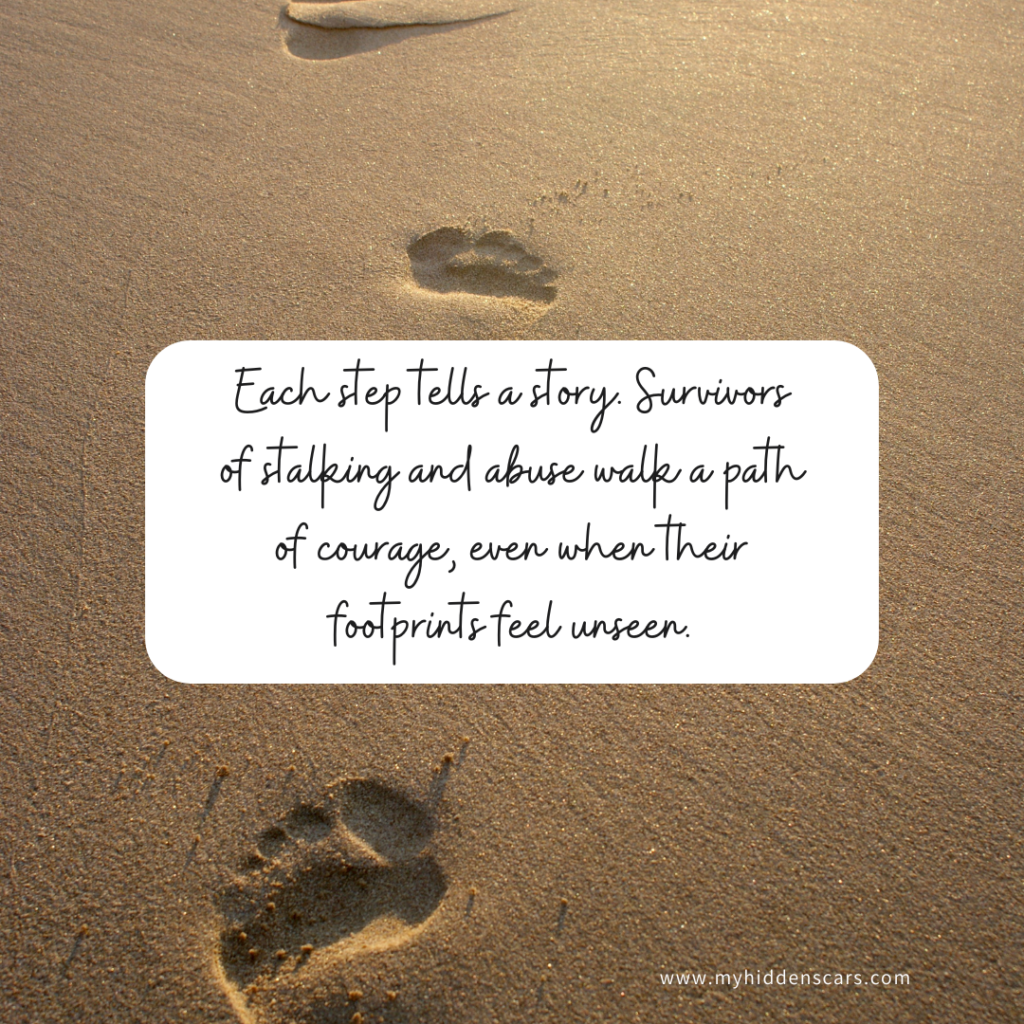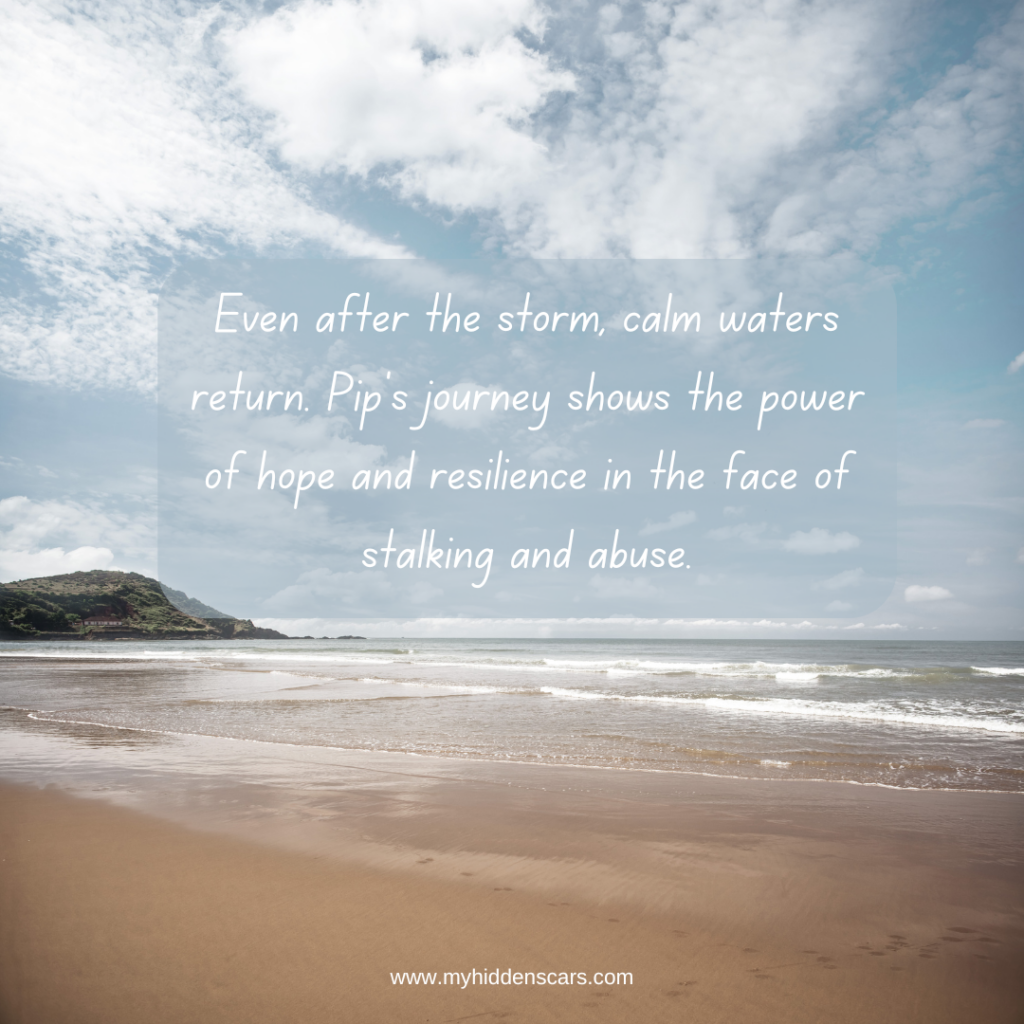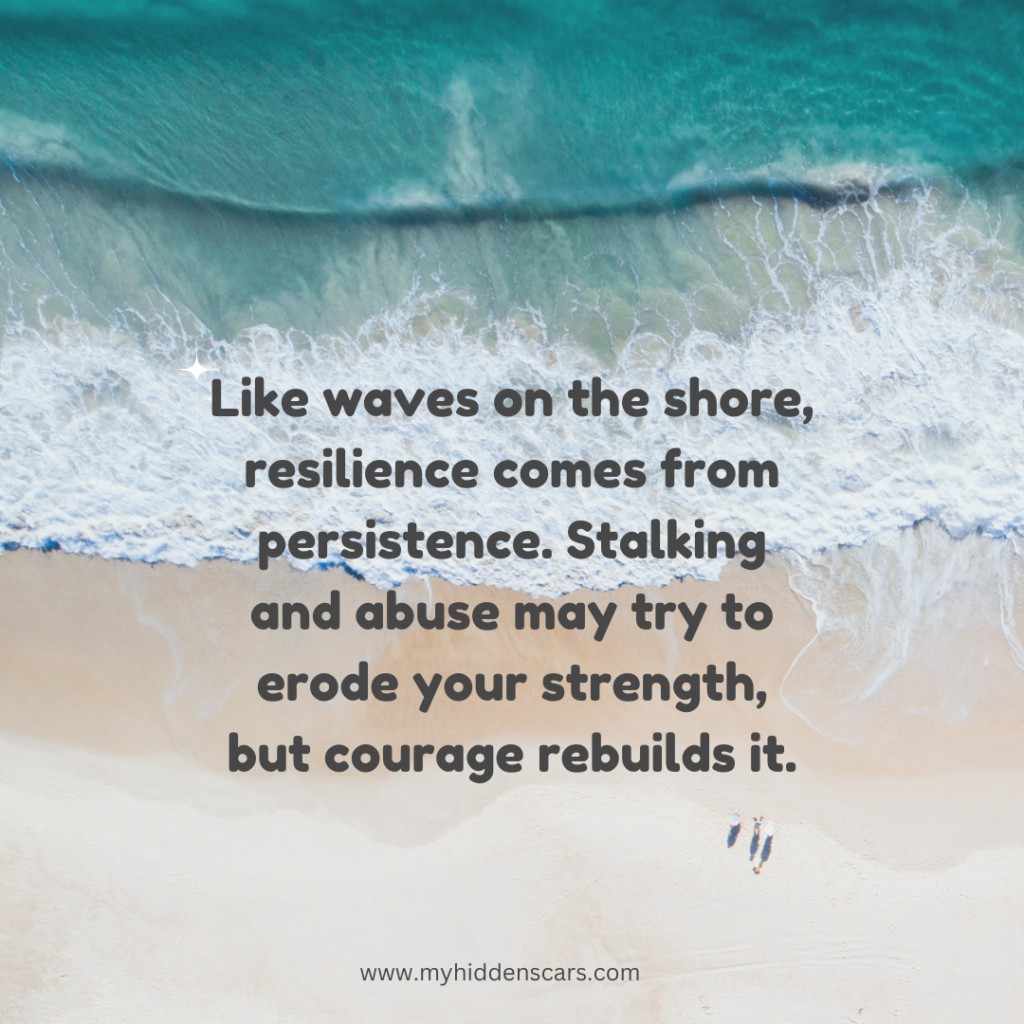Stalking and abuse have always been difficult topics to talk about, but they are forms of harm that leave lasting scars. I’ve always found that reading helps me process and understand the world, whether it’s through fiction or non-fiction. Books have a way of teaching us, opening our eyes to different perspectives, and even helping us make sense of complex topics like stalking and abuse.
Recently, I’ve been drawn to stories that explore difficult themes like abuse, justice, and resilience. One series that truly struck a chord with me is A Good Girl’s Guide to Murder by Holly Jackson. While it’s a fictional mystery, the themes and experiences Pip faces feel painfully real—especially in As Good As Dead, where Pip becomes the victim of a stalker.
Stalking is a terrifying form of abuse, and its portrayal in the book hit home for me. Pip meticulously documented her stalker’s behavior—photos, notes, and patterns. But when she reported it to the police, her evidence was dismissed, her fears invalidated. Hearing comments like “You’re overreacting” or “That’s just a coincidence” felt isolating when I experienced it myself, and I’ve learned it’s something far too many survivors hear as well.

As I read Pip’s breakdown of her stalker’s behavior, it struck a deep chord. It made me realize how easily people manipulate and gaslight survivors into believing their fears are exaggerated or unfounded. This tactic is incredibly damaging—not only invalidating real fears but also forcing survivors to question their own reality. Pip’s experience highlights the deep-rooted societal tendency to dismiss stalking as harmless, leaving survivors feeling vulnerable, doubted, and unheard.
This struck a nerve because it reflects a painful truth: stalking is often minimized, and the emotional toll it takes is rarely understood. It’s a form of abuse that is too often brushed aside, yet it leaves a lasting impact on those who experience it.
Why Stalking and Abuse Feel Inescapable
Stalking is not about love or harmless persistence—it’s about control and intimidation. It’s a pattern of repeated behavior that causes someone to feel fear, distress, or harassment. For many, it’s not the single act that’s frightening—it’s the cumulative effect. Seeing someone show up unexpectedly at places you frequent, noticing them watching you from a distance, or realizing they know things about your life that you never shared aren’t coincidences.
Stalking and abuse often leave survivors feeling trapped and powerless because these behaviors are not just frightening—they’re designed to control and intimidate. In As Good As Dead, Pip discovers that she knows her stalker, which is a chilling but familiar reality. Most victims know their stalker, which makes the experience even more distressing. This hit close to home for me because I’ve experienced similar situations. My ex has shown up in places he wouldn’t normally be and knows things about me he shouldn’t—actions that feel deliberate and invasive.
I’ve written about this before in my blog post on stalking and domestic abuse. Stalking is often used as a tool to maintain control over someone who has left—or is trying to leave—an abusive relationship. It’s a tactic that instills fear, even after physical abuse has ended, leaving survivors feeling like they can never truly escape. Pip’s story reflected this so vividly that it reminded me how often survivors are gaslit into believing they’re exaggerating their fears when, in fact, their intuition is spot-on.

What Pip’s Story Teaches Us About Stalking and Abuse
In As Good As Dead, Pip’s stalker’s behavior starts small but escalates over time. At first, she receives anonymous emails and tweets—unnerving but easy for others to dismiss. Then the threats become more tangible and menacing: headless chalk stick figures begin appearing near her home, creeping closer with each new drawing, and eventually, she discovers headless pigeons left as deliberate threats. These escalating actions leave Pip feeling watched and vulnerable, but she carefully documents every incident, creating a detailed record of the stalking.
In As Good As Dead, Pip’s story highlights how stalking and abuse escalate over time, leaving survivors feeling increasingly isolated and afraid. When Pip reports her fears to Detective Inspector Hawkins, his response is dismissive and condescending. Hawkins waves off her concerns, saying things like, “You’re connecting dots that aren’t there” and “It’s just kids messing around.” Even with concrete evidence—photos, timestamps, and detailed descriptions—he invalidates her fears and refuses to take action. This pattern of dismissal leaves Pip feeling isolated and unsupported, forcing her to question whether she can rely on anyone for help.
These responses reflect what many survivors experience when they try to report stalking. Comments like:
• “You’re overreacting.”
• “That’s probably just a coincidence.”
• “It’s not that serious.”
Hearing these kinds of remarks can make survivors feel like they’re imagining things or blowing things out of proportion, even when their instincts tell them otherwise. Pip’s story captures the frustration and emotional toll of being dismissed by those who are supposed to help, highlighting the need for change in how stalking is addressed and understood.
Steps to Take if You’re Experiencing Stalking and Abuse
From my own experience and insights I’ve gained helping others, these steps can help you protect yourself and feel empowered:
1. Trust Your Instincts: Your safety and peace of mind matter. If something feels wrong, it probably is. Never let anyone pressure you into downplaying your fears.
2. Call the Police if You’re in Immediate Danger: If you feel unsafe, call the police immediately. Be as clear and specific as possible about why the stalker’s actions are making you feel threatened.

3. Document and Save Everything: Keep a detailed log of every incident, including dates, times, and descriptions. Save texts, emails, photos, or social media messages—these can be critical for building evidence if you choose to pursue legal action.
4. Secure Your Environment: Change passwords, adjust privacy settings on your accounts, and be mindful about sharing personal information online. These small steps can make a big difference in limiting access to your life.
5. Connect With Support Services: Reach out to a local victim service provider or advocacy organization. They can help you explore your options, provide legal guidance, and connect you with resources to protect yourself.
When Fiction Feels All Too Real
Fiction has a way of distilling truths we often struggle to articulate in real life. Holly Jackson’s A Good Girl’s Guide to Murder series goes beyond being a gripping mystery—it’s an emotional journey through themes of justice, resilience, and the complexities of human relationships. Pip’s story doesn’t just shine a light on stalking and abuse; it also explores trauma, moral dilemmas, and how far someone will go to uncover the truth.
What resonated most with me was how raw and honest Pip’s experiences felt, from the dismissals she faced to the lengths she went to protect herself. Her persistence and courage highlight the importance of believing in survivors and advocating for systemic change. It also reminded me of how closely stalking is tied to control in abusive relationships.
If you’re intrigued by these themes or want a compelling read that keeps you questioning until the last page, I can’t recommend this series enough. It offers a powerful exploration of justice, survival, and the harsh realities many face behind closed doors. Whether you’ve experienced something similar, know someone who has, or want a story that stays with you long after you close the book, this series delivers.






